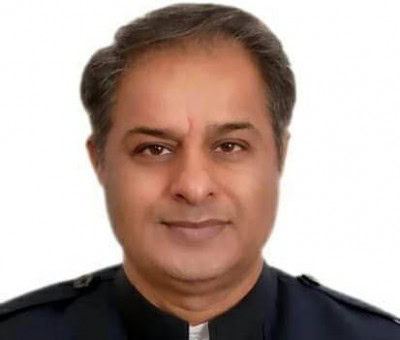New Delhi, Aug 19 : In the wake of demise of its spokesperson Rajiv Tyagi, the Congress has raised the matter of toxic and sensational debates on certain TV news channels with the NBSA and sought an advisory to various media houses for enforcing a code of conduct to curb sensationalist television debates.
A Congress delegation of Abhishek Manu Singhvi, Pranav Jha, and Jaiveer Shergill appeared before the News Broadcasting Standards Authority (NBSA) headed by Justice AK Sikri on the issue.
They wanted a curb on what they called “sensationalist, slanderous and toxic nature of televised media debates” and strict adherence to the NBSA guidelines.
After the meeting, Shergill said: “It is high time that the slanderous beast of TV debates is tamed. We have specifically argued before the NBSA to take stern action against channels promoting acrimony on their respective platforms and also clarify that mudslinging, name-calling, shouting and provoking are strictly prohibited. Time has come to lock down verbal bloodsport arena presented in the nature of toxic TV debates.”
Singhvi specifically argued that media houses, journalists, anchors, and spokespersons and leaders of different political parties “must be held accountable for their actions and conduct” during the debates.
The News Broadcasters Association, a private body of different current affairs and TV news broadcasters in India, holds the authority to ensure compliance with its guidelines and instructions.
The NBA guidelines on broadcast of potentially defamatory content, dated December 13, 2012, have been spelled out to prevent the inculpable harm on an individual given the phenomenal power and reach of broadcasting.
The Congress said in a statement that TRP paradigm drives sensational, slanderous, and sardonic debate panels.
“There is an imminent need for adherence to the code of conduct and need for institutional reform in India with respect to holding of TV debates,” the party added.
The delegation sought issuance of an advisory for conduct as per Guideline 7.1 of the News Broadcasting Standards Regulations (See Clause B, Section 3) to comply with the December 13, 2012, specifications on broadcasting of potentially defamatory content (Clause C).
“Issue a clarification on the term ‘acrimonious’ and instruct anchors/panelists and media channels not to indulge in acts of personal name-calling, instigation and mic control. The anchor should stand responsible for the acts of their panel, thereby acting as a mitigatory force rather than a catalyst to heated deliberation. In essence, the anchor shall ensure that the decency and civility of the debate is not lost.”
The Congress had blamed a ‘toxic’ TV debate for the untimely demise of its spokesperson Rajiv Tyagi on August 12 due to a cardiac arrest.
Tyagi had attended a debate on a TV channel and complained of chest pain soon after the programme ended. He fell unconscious and was rushed to the hospital, where doctors pronounced him dead.
Disclaimer: This story is auto-generated from IANS service.

